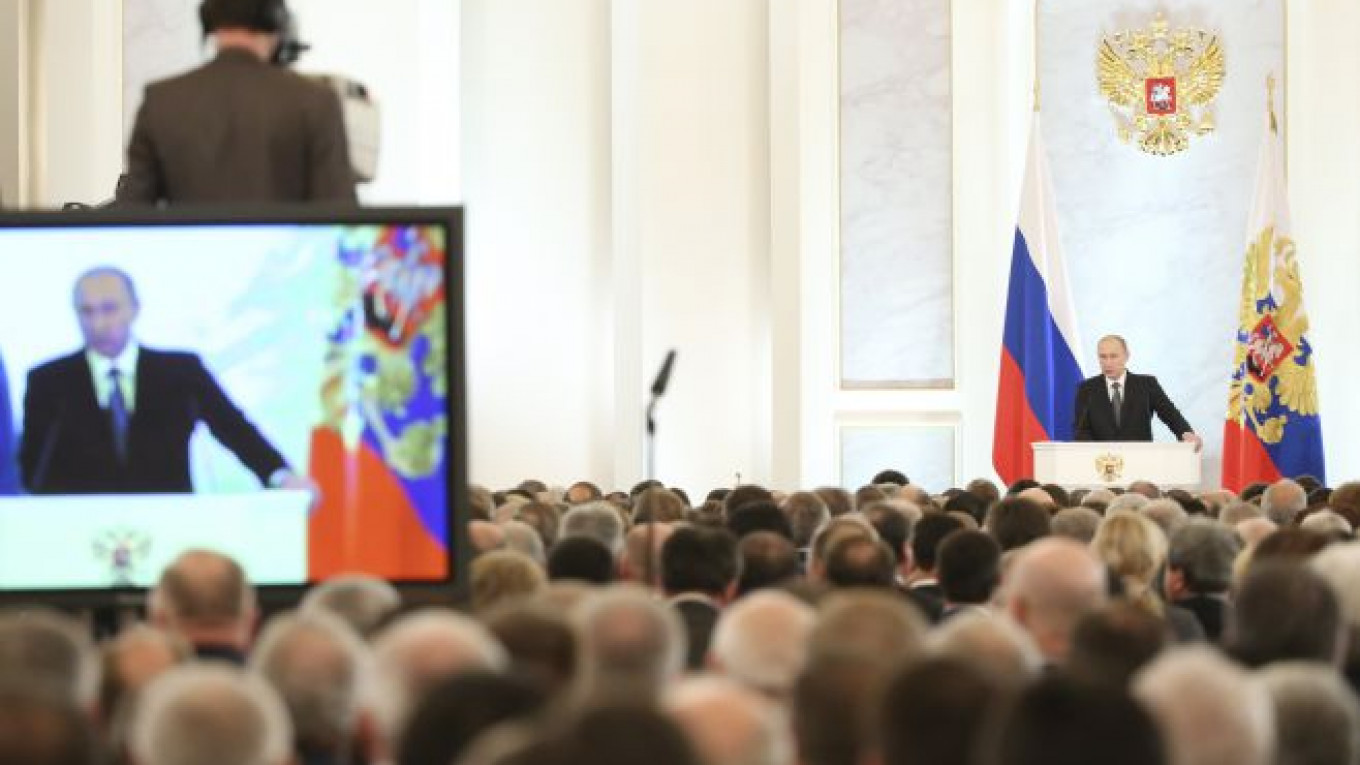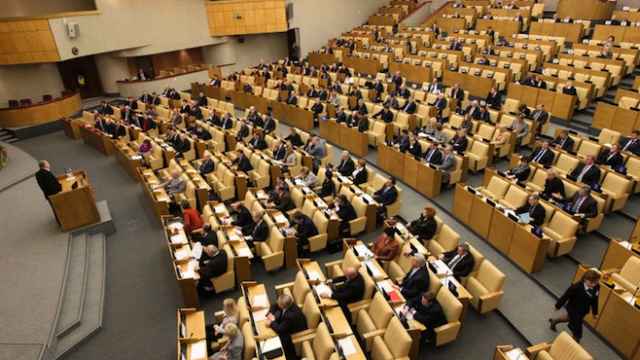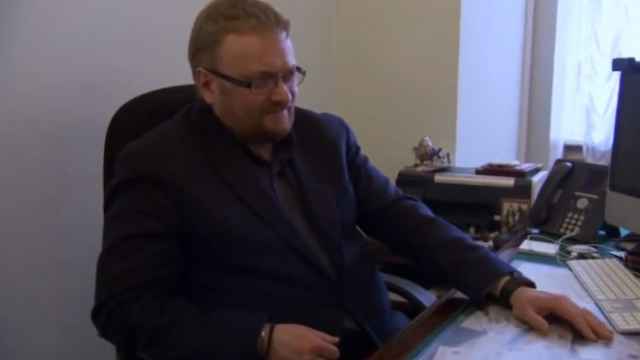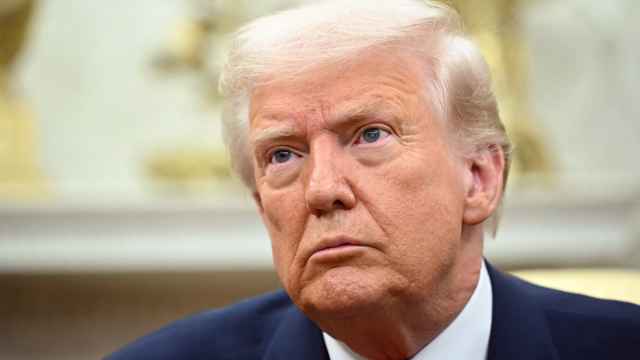If the State Duma's legislative initiatives may occasionally cause bewilderment or even outright laughter, lawmakers insist that they are in on the joke — with some adding that Russia's parliament is not a place to make laws anyway, according to recent interviews.
There has been no shortage of colorful legal initiatives in recent months, from proposed bans on high heels and ballet flats to a ban on the use of foreign words in public speech.
State Duma deputy Yaroslav Nilov from the Liberal Democratic Party — whose fellow party member took issue with the "pornographic" Apollo on the 100-ruble note — said that lawmakers have little real legislative work to do, and have to resort to outlandish bills to remind the nation of their high parliamentary ranks, Lenta.ru reported earlier this month.
"Unfortunately, a system has been created today in the State Duma that means that without the support of the ruling party, no bill can pass. Regardless of whether it's good or bad," Nilov was quoted as saying. "So to ensure their presence … deputies have nothing else to do but to introduce these peculiar bills and initiatives that generate an interest in media and society."
Compared with the peculiar bills, Nilov saw a bigger problem in deputies' "idleness, participation in various scandals and near-criminal schemes," which he said damaged their "image," Lenta.ru reported.
Ruling United Russia party's lawmaker Yevgeny Fyodorov — who has recently accused Google of possibly spying for Ukraine in another unorthodox legislative revelation — said that even his ruling party served a mostly rubber-stamping function.
"Serious bills, even if they are signed by lawmakers, are not prepared inside the State Duma's walls," Fyodorov was quoted as saying by Lenta.ru. "The State Duma only passes the bills that arrive there from other places."
"Lawmaker's own initiatives are something else. It's a show," he was quoted as saying. "I wouldn't say that those initiatives discredit our Duma. A theater isn't discredited, if instead of tsars, its stage features jesters. It's that kind of theater, that kind of Duma."
A deputy from the A Just Russia faction, Oleg Nilov, said that some of the State Duma's initiatives fell "beyond the limits of normal lawmaking," but were sometimes necessary to get the government's attention, Lenta.ru reported.
"Stupid legislative initiatives are not an exclusively Russian problem," he added, Lenta.ru reported.
In St. Petersburg, a local lawmaker from the municipal legislature, Vitaly Milonov — a staunch advocate of restoring Russia's "traditional values" — told Lenta.ru that attention-grabbing initiatives were just the tip of the moral iceberg.
"I think the bright but useless initiatives appear as a result of a crisis in the value system," he was quoted as saying.
State Duma's Communist lawmaker Vadim Solovyov — whose faction has recently proposed a bill to ban cigarette sales to women under 40 — said that "original" initiatives serve a great purpose: They get their authors votes.
"A person reads about a ban on heels or about repainting the Kremlin, laughs, gets some positive [emotions]," Solovyov was quoted as saying. "And then at a polling station, that person sees the name of that lawmaker, and there's already an associative connection with something pleasant."
"Once lawmakers were really drafting bills, carrying out parliamentary investigations, made a no-confidence vote for the president, influenced the appointments of the prime minister, and so on," Solovyov added, according to Lenta.ru
He was apparently referring to a time during former President Boris Yeltsin's rule when the State Duma's Communist faction had proposed no-confidence votes in the president, had attempted — unsuccessfully, though it was a close call — to impeach Yeltsin in 1999, and when the legislature had bickered with the former president over his nominations for prime minister.
"Now the activities of the Duma look like a clown show and the fifth wheel of the executive power," Solovyov was quoted as saying.
Contact the author at [email protected]
A Message from The Moscow Times:
Dear readers,
We are facing unprecedented challenges. Russia's Prosecutor General's Office has designated The Moscow Times as an "undesirable" organization, criminalizing our work and putting our staff at risk of prosecution. This follows our earlier unjust labeling as a "foreign agent."
These actions are direct attempts to silence independent journalism in Russia. The authorities claim our work "discredits the decisions of the Russian leadership." We see things differently: we strive to provide accurate, unbiased reporting on Russia.
We, the journalists of The Moscow Times, refuse to be silenced. But to continue our work, we need your help.
Your support, no matter how small, makes a world of difference. If you can, please support us monthly starting from just $2. It's quick to set up, and every contribution makes a significant impact.
By supporting The Moscow Times, you're defending open, independent journalism in the face of repression. Thank you for standing with us.
Remind me later.






